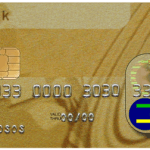The spelling of scam
The caller display showed ‘Unknown’.
‘Hello, my name is James and I am telephoning about a problem with your computer’.
‘Are you?’
There was a view across to the Galtee mountains beyond the window of the hotel foyer.
‘Yes, we have noticed that your computer has been performing illegal actions and causing problems. We need to access your computer to rectify this problem’.
A party of American visitors wandered through the foyer, carrying large cups of coffee.
‘I see. Perhaps you would help me with something’.
‘Yes, sir, of course’.
‘Do you have a pen and paper’.
‘I have’.
The woman passing would have thought the priest standing talking on his mobile looked very cheerful for a cold, showery April morning’.
‘I need you to write something down for me, would you do that?’
‘I will, sir’.
‘The first letter is, ‘s’. Would you write that down?’
‘S?’
‘Yes, ‘S’. Then ‘C’.
‘C’.
‘Then ‘A’.
‘A’.
‘Now ‘M’.
‘Have you got that?’
‘I have, sir’.
‘Would you read that to me’.
‘Scam’.
‘Excellent, you got it straight away. That is what you are. Good morning’.
Petty and nasty, I punched the air in delight and joined friends at a table for tea and fresh scones.
The ability of a scammer to gain much information online is probably limited. Few people store enough information in their computer to allow fraudsters to access bank accounts; online banking log in demands a fresh input of information each time and alarm bells ring very quickly at banks at the first sign of anything irregular. Our credit card was frozen last autumn after we used it five times to pay French motorway tolls; transactions arising from Asia would soon be stopped.
But it must be worth the scammers’ time for them to persist in making such calls; there must be enough occasions when they gain information that is of monetary value.
James, or whatever his real name might have been, seemed guileless, what did he think he was writing down as I call out the letters? Did he think he was being given a password? And why did he not just hang up when he realized what he had written? Maybe he didn’t know what a scam was, despite being in the middle of one.
Drinking tea, there was a moment of feeling sorry for someone who was trying to make money in such a manner, only a moment, though. Criminals are not Robin Hoods, they prey on the weakest and the most vulnerable. The next number he dialled might have allowed him the access he sought.
There are not many as worldly wise as a local farmer who kept the caller chatting for a while asking what he should do to allow the caller to connect before concluding, ‘That’s all been very interesting – but I don’t have a computer’.



Comments
The spelling of scam — No Comments
HTML tags allowed in your comment: <a href="" title=""> <abbr title=""> <acronym title=""> <b> <blockquote cite=""> <cite> <code> <del datetime=""> <em> <i> <q cite=""> <s> <strike> <strong>